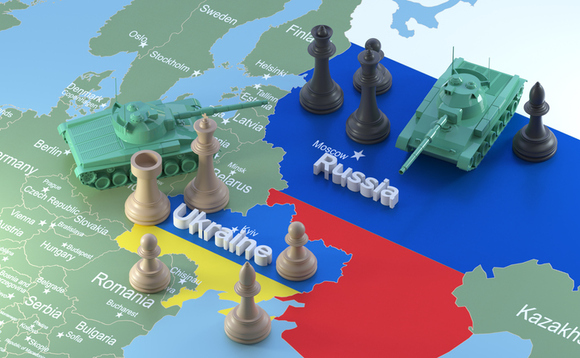As geopolitical tension mounts around Russia and Ukraine, Alastair Reynolds a Portfolio Manager on the Martin Currie Global Emerging Markets Strategy, looks at the situation, the risks and what it means for emerging markets.
What does the current risk situation pose?
The build-up of Russian troops along the Ukrainian border has been a growing source of tension in recent months. With the entry of Russian troops into eastern Ukraine this week, the threat to Ukraine's sovereignty has reached crisis point and this has led to extreme levels of volatility in Russian stocks.
Our Global Emerging Markets team anticipates that Russia may seek to occupy the Donetsk and Luhansk regions of Ukraine and that this in turn will trigger a wave of sanctions against Russia from foreign governments.
There are several sanctions which have been tabled as a possible response to the current crisis. These range from those directed at government-linked businesses or individuals through broad-based restrictions limiting Russia's international economic ties. Sanctions of increasing severity are likely to be rolled out in response to any escalation of infringements against Ukraine's sovereign rights.
What does this mean for investments?
Russia represents a small but highly conspicuous part of the emerging markets universe. As an investment opportunity it is driven by political risk, given that the country's stock market is dominated by state-owned national champions such as Gazprom, Rosneft and Sberbank. The politicised nature of the Russian market is exacerbated by the fact that much of Russia's political ideology is at odds with that of the US, UK and EU. Within our Global Emerging Markets strategy we seek to allocate portfolio risk to stock specific factors rather than to macro-related factors. Macroeconomic and other top-down factors are viewed as a source of risk to our strategy, rather than as a source of alpha.
Despite its geopolitical challenges, Russia is home to some highly profitable and well managed businesses which, in light of the ever-present political risks, trade at much lower valuations than their global peers.
Consider the performance dispersion for MSCI Russia compared to the MSCI Emerging Markets Index since 2014, when Russia invaded the Crimea, the dispersion on an absolute basis has averaged 35% per annum . Over the same period, the standard deviation of monthly returns for the MSCI Russia Index is almost double the MSCI Emerging Markets Index at 7.8% (versus 4.7% for the latter)2. This marked a turning point for Russian equities in terms of market volatility.
We have taken a cautious approach to the Russia-Ukraine situation by limiting our overall exposure to the region. We view state-linked businesses in Russia as being at greatest risk of equity market sanctions.





